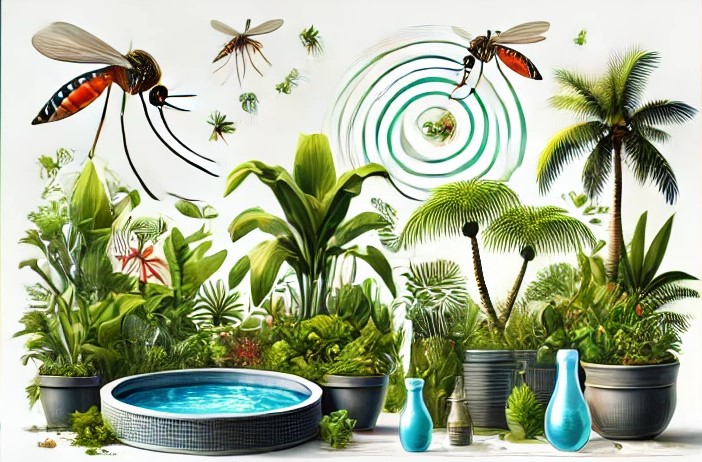
Mosquitoes are a part of our daily environment, but they are also a source of nuisance and concern due to their ability to transmit diseases. Many myths and popular beliefs surround these insects, most of which lack scientific basis. In this article, we explore the most common myths and truths about mosquitoes and share practical tips to reduce the risk of bites and protect against potential diseases, with solutions offered by Eco Fauna Control.
Common Myths About Mosquitoes
1. Mosquitoes prefer people with “sweet blood”:
False. Mosquitoes are primarily attracted to carbon dioxide exhaled, body heat, and certain chemical compounds on the skin, not the sweetness of the blood.
2. All mosquitoes transmit diseases:
False. Of the more than 3,500 mosquito species, only a few are vectors for diseases such as dengue, malaria, or Zika.
3. Mosquitoes die after biting:
False. Female mosquitoes can bite multiple times during their lifetime to collect enough blood to develop their eggs.
4. Citronella candles effectively repel all mosquitoes:
Partially false. While citronella candles have repellent properties, their effectiveness is limited and does not provide complete protection.
Scientific Truths About Mosquitoes
1. Only females bite:
True. Female mosquitoes need the proteins from blood to develop their eggs.
2. Mosquitoes detect CO2:
True. Mosquitoes locate hosts by following carbon dioxide trails that we exhale.
3. They prefer certain blood types:
True. Studies indicate that people with type O blood may be more attractive to mosquitoes.
4. They are attracted to body heat:
True. Heat and movement are also key factors for mosquitoes to identify their hosts.
Practical Tips to Reduce Mosquito Bites
- Use effective repellents: Choose products with ingredients like DEET, Picaridin, or oil of lemon eucalyptus. Apply them as directed by the manufacturer.
- Wear appropriate clothing: Opt for light-colored clothing, long sleeves, and pants, especially at dawn and dusk when mosquitoes are most active.
- Avoid fragrances: Perfumes and products with sweet scents can attract mosquitoes.
- Control your environment: Install screens on doors and windows, and use fans or air conditioning to make it harder for mosquitoes to fly.
- Eliminate breeding grounds: Empty and clean containers that collect stagnant water, such as flowerpots, buckets, or old tires.
- Extra protection for pregnant women: Pregnant women are more attractive to mosquitoes and should take additional precautions.
- Use bed nets: Both on windows and around beds, mosquito nets are an effective barrier against bites.
- Avoid high-risk areas: Stay away from stagnant water or dense vegetation during peak mosquito activity times.
At Eco Fauna Control, we offer professional and sustainable solutions to combat mosquitoes and protect your home and family. From eliminating breeding grounds to using eco-friendly repellents, our team ensures a safe and effective approach tailored to Aruba’s unique environment.
Contact us today to learn more about how we can help safeguard your health and create a mosquito-free space.
Debunking mosquito myths helps us better understand their biology and behavior, enabling us to protect ourselves more effectively. Despite their small size, these insects have a significant impact on human health and well-being. With proper preventive measures and an informed approach, we can minimize the risks associated with mosquito bites and the diseases they carry.
